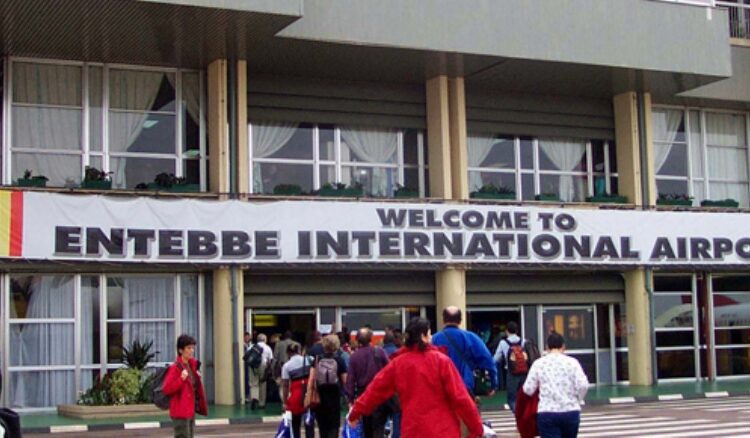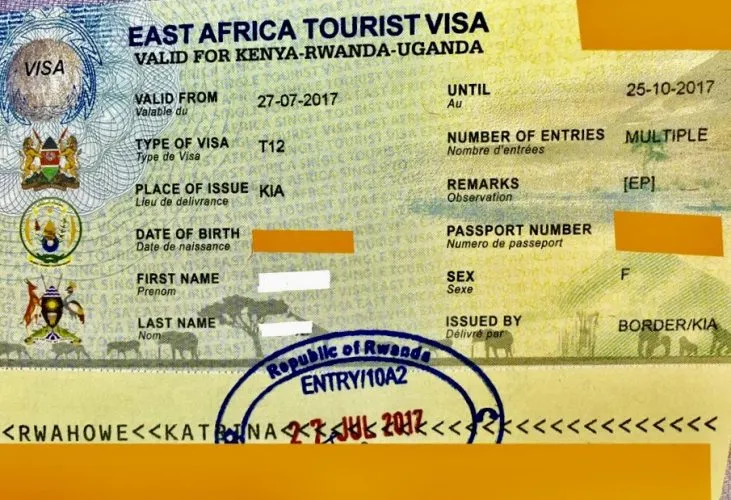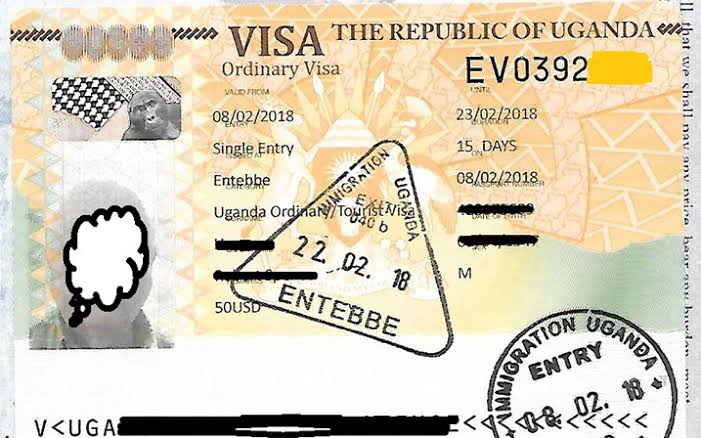
How to Greet Locals in Luganda | Experiya Tour Company
October 29, 2025
What to Wear in Rural Uganda | Experiya Tour Company
October 29, 2025Is Tipping Expected in Uganda?
When planning a trip to Uganda — the Pearl of Africa — it’s natural to wonder about tipping etiquette. Uganda is a warm and hospitable country where service comes with a smile, and while tipping is not an obligation, it is certainly appreciated. Whether you’re staying at a safari lodge, dining in a local restaurant, or enjoying the company of a knowledgeable tour guide, understanding Uganda’s tipping culture can help you show gratitude in a way that’s both respectful and meaningful.
Tipping in Uganda is not as formalized as in some Western countries, and there are no strict rules about how much to give. However, small gestures of appreciation go a long way, especially since many people working in the tourism and service industry rely on tips to supplement their income. This guide explores when, where, and how much to tip in Uganda, as well as cultural nuances that will help you handle the practice gracefully.
Understanding Tipping Culture in Uganda
Uganda’s culture is deeply rooted in generosity and community. People help one another naturally — without always expecting something in return. That same spirit extends to the service industry, where workers often take pride in serving guests well, regardless of whether a tip is given.
However, as tourism has grown, tipping has become increasingly common in hotels, restaurants, and safari lodges. It’s viewed as a token of appreciation rather than an obligation. Most Ugandans do not expect large tips, but even a small amount is valued and taken as a gesture of kindness.
In rural areas, tipping may still be uncommon, especially among locals who don’t typically tip for basic services. In urban centers like Kampala, Entebbe, and Jinja — and in the safari circuit — tipping is now standard practice.
If you are unsure whether to tip, a friendly “thank you” in English or Luganda (Webale nnyo) and a smile always convey gratitude. But if you wish to reward exceptional service, here’s how to do it appropriately.
When and Where to Tip in Uganda
1. Restaurants and Cafés
In most restaurants, especially in cities and tourist areas, tipping is appreciated though not mandatory. Service charges are rarely included in the bill, so diners usually leave a cash tip after paying.
A good rule of thumb is to leave 5–10% of the total bill if the service was satisfactory. In high-end restaurants or hotels, you can tip a bit more, around 10–15%.
If you’re dining at smaller local eateries (kafundas), tipping is not expected, but leaving a small token like UGX 2,000–5,000 (about USD 0.50–1.50) is always appreciated.
It’s best to hand the tip directly to the waiter or waitress rather than leaving it on the table. This ensures it goes to the person who served you, as not all restaurants pool tips.
2. Hotels and Lodges
Hotels and safari lodges in Uganda often employ several staff members who work behind the scenes to make your stay comfortable — from the housekeeping staff to the chefs and porters. In these settings, tipping is customary but handled in specific ways.
Most lodges and camps have a staff tip box at reception. Guests can leave a lump sum there at the end of their stay, and the management divides it fairly among the staff. This approach avoids favoritism and ensures that everyone, including those working behind the scenes, benefits.
For luxury or mid-range lodges, a good tip is around USD 5–10 per guest per night, placed in the general tip box. If you wish to tip a specific staff member personally — for example, a porter who carried your bags or a waiter who went above and beyond — it’s perfectly acceptable to give them a small envelope discreetly.
In budget hotels, smaller tips such as UGX 5,000–10,000 (USD 1–3) per stay are appreciated.
3. Safari Guides and Drivers
Guides and drivers play a vital role in shaping your safari experience. They share their knowledge of wildlife, navigate challenging terrains, and ensure your safety throughout the journey. Because of their personal involvement, tipping them directly is customary and well-deserved.
A fair guideline is to tip your driver-guide around USD 10–20 per traveler per day, depending on the quality of service. If you are part of a group, you can pool together a collective tip at the end of the safari and present it as a gesture of appreciation.
For shorter transfers, such as airport pickups or day trips, a tip of USD 5–10 per person is appropriate.
Many travelers prefer to give the tip at the end of the trip, accompanied by a handshake and a few kind words. Ugandans appreciate personal gratitude as much as the money itself.
4. Park Rangers and Trackers
If your safari includes gorilla trekking, chimpanzee tracking, or nature walks led by park rangers or trackers, it’s customary to tip them for their expertise and dedication.
For gorilla trekking in Bwindi Impenetrable or Mgahinga National Parks, rangers and porters work tirelessly, often navigating difficult terrain to ensure a successful trek.
A typical tip range is:
- USD 10–20 per traveler for the ranger/guide.
- USD 10–15 per traveler for porters who carry your bags or assist you during the hike.
Porters often come from local communities, and tipping them directly provides vital support for their livelihoods.
5. Taxi Drivers and Boda Boda Riders
For short taxi or boda boda (motorcycle taxi) rides within cities, tipping is not expected, as fares are usually agreed upon in advance. However, if the driver helps carry luggage, waits for you during errands, or provides exceptional service, you can round up the fare by UGX 2,000–5,000.
For private transfers or long-distance trips, especially when drivers assist with bags or act as informal guides, tipping USD 5–10 is appropriate.
6. Tour Operators and Safari Companies
When booking multi-day tours through local operators, such as Experiya Tour Company, you’ll often have a driver-guide and possibly additional support staff. While the company pays their salaries, a personal tip from clients is a sign of appreciation that motivates and uplifts the team.
You can tip your main guide directly and, if you wish, give an envelope to the company office for distribution to other staff involved in your trip’s logistics.

7. Community Visits and Cultural Experiences
During village visits, traditional performances, or craft workshops, it’s common to make a small contribution or purchase something handmade as a way of supporting the community. While not considered a “tip,” this gesture has the same spirit of appreciation.
In such settings, UGX 10,000–20,000 (USD 2–5) per visitor is a generous token that goes a long way toward supporting local families and cultural groups.
How to Tip Politely in Uganda
Tipping in Uganda is always done with humility and respect. Here are a few tips on tipping etiquette:
- Use cash — preferably Ugandan shillings (UGX) or small U.S. dollar bills in good condition. Credit card tips are uncommon.
- Give tips discreetly. Hand them in an envelope or folded bill, rather than openly, to maintain dignity.
- Offer a word of thanks. A simple “Webale nnyo” (thank you very much) or “Mwebale emirimu” (thank you for your work) makes the gesture even more heartfelt.
- Be consistent. Rather than one large tip at the end of a trip, small, thoughtful gestures throughout your journey can make a difference.
What Not to Do When Tipping
- Don’t tip with coins from other countries; they can’t be exchanged.
- Don’t leave extremely small tips that may feel dismissive (like a few cents).
- Don’t feel pressured to tip if the service was poor or if the person declines politely.
- Don’t assume every local expects a tip — some may be genuinely surprised by it, especially in rural areas.
A Traveler’s Perspective: The Meaning of Tipping in Uganda
What makes tipping in Uganda special is that it often goes beyond money. It’s an act of human connection — a shared appreciation between traveler and host. When you tip a porter in Bwindi, you’re helping a parent pay school fees. When you tip a guide after a successful safari, you’re recognizing the knowledge, passion, and care that made your experience unforgettable.
Tipping also fosters responsible tourism. Many safari lodges and tour companies use collective tip systems to support education, healthcare, or conservation projects within the communities they operate. Thus, your generosity directly contributes to sustainable development in Uganda.
Why You Should Travel With Experiya Tour Company
For travelers who value meaningful connections and cultural understanding, Experiya Tour Company is the ideal partner for your Ugandan adventure. Experiya doesn’t just organize safaris and tours — they curate authentic experiences that respect local traditions and communities.
Their team provides transparent guidance on tipping etiquette, ensuring that your gestures of appreciation reach the right people. From expert safari guides to friendly lodge staff, Experiya works with passionate locals who take pride in showcasing Uganda’s beauty and hospitality.
Whether you’re exploring the wild savannas of Murchison Falls, trekking with gorillas in Bwindi, or relaxing by Lake Bunyonyi, Experiya ensures that every moment is guided by respect, care, and cultural authenticity.
Book your Ugandan journey with Experiya Tour Company today, and discover the beauty of a country where generosity flows both ways — from hosts to guests, and from travelers to the people who make every experience unforgettable.




